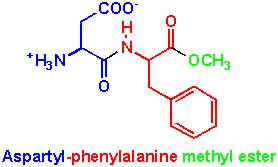Why Aspartame Isn't Scary
Replies
-
I strictly stay away from the stuff. My doctor says it is poison!2
-
Wow, I'm so surprised on how many people have no idea about the dangers of aspartame. This is why they put so many different chemicals in our food because everyone is so damn ignorant to educate themselves on what they are putting into their bodies. Aspartame IS dangerous. Yes, like it or not, we are all going to eventually die, but why put stuff into our bodies that is slowly KILLING us???
Yes, these stupid scientists who are so ignorant and uneducated, paying attention to information from peer reviewed studies instead of ....... Well,instead of what exactly?? :indifferent:
+10 -
Wow, I'm so surprised on how many people have no idea about the dangers of aspartame. This is why they put so many different chemicals in our food because everyone is so damn ignorant to educate themselves on what they are putting into their bodies. Aspartame IS dangerous. Yes, like it or not, we are all going to eventually die, but why put stuff into our bodies that is slowly KILLING us???
Yes you're right, the original post of nothing but science and hardcore facts proves that no one is educating themselves!!! It's DEFINITELY the people who turn to scientific studies who are ignorant; the people who just blindly believe the fear mongering they see on the internet are TOTALLY informed! Down with science!2 -
This content has been removed.
-
Just don't ingest it at a constant rate for long periods of time! The process that occurs when ingested can be broken down into the part that you guys really want to know. The aspartame is broken down in your system into methanol which is broken down by alcohol dehydrogenase. This converts is to a formal aldehyde, more commonly known as Formaldehyde. So just don't drink too much of it!1
-
Just don't ingest it at a constant rate for long periods of time! The process that occurs when ingested can be broken down into the part that you guys really want to know. The aspartame is broken down in your system into methanol which is broken down by alcohol dehydrogenase. This converts is to a formal aldehyde, more commonly known as Formaldehyde. So just don't drink too much of it!
^ gobbledygook nonsense1 -
There's far more formaldehyde in an apple than there is in aspartame. Again, and as always, it's about the DOSAGE, not about the chemical.Just don't ingest it at a constant rate for long periods of time! The process that occurs when ingested can be broken down into the part that you guys really want to know. The aspartame is broken down in your system into methanol which is broken down by alcohol dehydrogenase. This converts is to a formal aldehyde, more commonly known as Formaldehyde. So just don't drink too much of it!0 -
Wow, I'm so surprised on how many people have no idea about the dangers of aspartame. This is why they put so many different chemicals in our food because everyone is so damn ignorant to educate themselves on what they are putting into their bodies. Aspartame IS dangerous. Yes, like it or not, we are all going to eventually die, but why put stuff into our bodies that is slowly KILLING us???
Did you actually read the OP?1 -
Yes, one single study, using only saccharin, and a sample size of 7 people, is very convincing evidence of harm...
Well, 7 people...and a bunch of mice. The article reads: "The data in mice are very, very clear, The limited amount of research they did on humans at least suggests we need to examine our artificial sweetener use more carefully."
ETA: Reading actual study now, since of course Aaron posted a link! 0
0 -
You do realize the only thing that makes it artificial is the fact that they took the two amino acids and put them together, right? The amino acids themselves are natural, as they are created by bacteria. And plenty of natural substances are patented. Do you really think all these various cultivars of apples aren't patented by their creators? They are. Please stop talking if you don't know what you are actually talking about.Are there people who may be negatively affected by aspartame? Sure, they may have allergic reactions (it's a protein after all.) People are also negatively affected by strawberries, peanuts, shellfish, eggs, and milk, but that doesn't make any of those foods bad for the rest of the population.
Exactly!
For every product on the market, someone some place will have a negative reaction. This doesn't mean the product is bad. I can't take aspirin because of stomach sensitivity but I won’t run around screaming the sky is falling. It simply means I can’t take freaking aspirin.
There is a broader question at hand. And that is, do we really want to do an experiment where we unnecessarily expose the populace to a host of synthetic chemicals that have only been part of the physical milieu for less than a dozen decades? (As just one "minor" illustration, even aspirin, in high doses, is linked to cerebral hemorrhage and other bleeding disorders.) There is no assurance that any of these chemicals are safe in the longer term--and NO ONE has any idea whether the COMBINATION of these synthetic chemicals is safe. As a further concern, epigenetics tells us that we may not only be endangering ourselves but future generations as well. Should we not question the unnecessary exposure to synthetic chemicals? Aspartame may or may not be "scary" but is it really necessary?
1. I'm not an expert on epigenetics, but from what I understand of it I don't think that's really how that works.
2. Most of these chemicals, including aspartame, are made up of components that we encounter all the time. There is zero reason to think that somehow because the chemicals were put together in a lab setting instead of synthesized in a plant that our bodies will somehow respond to them differently.
3. This thread is going to roll on the next post. I will not be commenting again because I just want this damn thing off my recent topics list.
1. Since you are not an "expert", what you "think" isn't really relevant.
From "What is epigenetics?" The field of epigenetics is quickly growing and with it the understanding that BOTH THE ENVIRONMENT AND INDIVIDUAL LIFESTYLE CAN ALSO DIRECTLY INTERACT WITH THE GENOME TO INFLUENCE EPIGENETIC CHANGE. These changes may be reflected at various stages throughout a person’s life AND EVEN IN LATER GENERATIONS. For example, human epidemiological studies have provided evidence that prenatal and early postnatal environmental factors influence the adult risk of developing various chronic diseases and behavioral disorders.[1] Studies have shown that children born during the period of the Dutch famine from 1944-1945 have increased rates of coronary heart disease and obesity after maternal exposure to famine during early pregnancy compared to those not exposed to famine.
2. "...Aspartame is an ARTIFICIAL, non-saccharide sweetener used as a sugar substitute in some foods and beverages... Aspartame is a methyl ester of the aspartic acid/phenylalanine dipeptide. It was first sold under the brand name NutraSweet; It was first SYNTHESIZED in 1965 and the PATENT expired in 1992..."
Natural substances are not termed "artificial" nor are they patentable.
by that logic everything on earth is "natural" everything is made by putting things that are natural together.0 -
Why? because I'm taking antibiotics that have given rats cancer, so fawk it. I'm still alive! Been throwing splenda and equal in everythang! living dangerously here...2
-
I personally believe that hugging is an exercise.
We should all do this exercise more often0 -
Ha, I'm just going to let you all continue to drink the fluoride filled water. Enjoy!1
-
Personally, between sweetners in my coffee and coke zero/pepsi max, I probably have a lot of it over a 6 month period, being diabetic I have to get a full blood work done quite often, and so far, over 35 years using them, my blood works all within normal ranges.
I don't crave sweets or chocolates or cakes, glucose levels constantly low, so I could be classed as a test subject of 1 lol..
Simple point is, if it works for ya, use it, if it gives ya problems, don't use it.
END OF LINE:0 -
Usually I would think this is a joke about conspiracies, but you can never be too sure around these parts if someone is dead serious about a post like that.Ha, I'm just going to let you all continue to drink the fluoride filled water. Enjoy!0 -
Bump.0
-
-
It used to be stickied, and I am sad that it's not anymore! I've seen a lot of fear mongering regarding aspartame in the forums lately, and it's getting old. Thought I'd give this one a bumpity bump in the hopes that some lost souls would read it...0 -
Oh wow! Very informative. I had been wondering about aspartame myself. A guy I know said he cut out aspartame and sucralose and what he calls "fake sugars" and claimed to lose 40 pounds in a month. (He was about 290.) I didn't tell him this, but I think he lost that weight because he cut way down on calories, but he attributed the loss to the cutting out of fake sugars instead.
And if he weighed the same as a duck, he'd be made of wood. Thus, we could burn him as a witch...if we were in the business of burning witches, that is.
^^This.0 -
And the SAME happens while ingesting tomatoes and citrus fruits. You probably want to know about that.annecsmith92 wrote: »Just don't ingest it at a constant rate for long periods of time! The process that occurs when ingested can be broken down into the part that you guys really want to know. The aspartame is broken down in your system into methanol which is broken down by alcohol dehydrogenase. This converts is to a formal aldehyde, more commonly known as Formaldehyde. So just don't drink too much of it!
A.C.E. Certified Personal and Group Fitness Trainer
IDEA Fitness member
Kickboxing Certified Instructor
Been in fitness for 30 years and have studied kinesiology and nutrition
0 -
Science aside, I choose not to use artificial sweeteners and I don't feel like I need to justify that decision to anyone. If "you" want to have at it - I wouldn't try to convince you otherwise.0
-
So_Much_Fab wrote: »Science aside, I choose not to use artificial sweeteners and I don't feel like I need to justify that decision to anyone. If "you" want to have at it - I wouldn't try to convince you otherwise.
And that's your choice - I have no problem with people choosing to avoid something for personal reasons.
It's the people that go around claiming that the sky is falling and we're all going to die because aspartame. When people begin fear-mongering and spreading misinformation, then it isn't a "personal" reason anymore. It's getting people all worked up over something that isn't accurate. That's when the science is important.0 -
I've been consuming the equivalent of a 2 liter bottle of diet soda (or tea) daily for the last 25 years. My blood work, blood pressure & general health are excellent. So there's some anecdotal (sic?) evidence for you.0
-
When I joined last October this was one of the first threads I read on MFP, I'm so glad I did. It also gave a good insight into how many funny people are in this forum and how many people do not read the original post...... and this response still makes me laugh!I strictly stay away from the stuff. My doctor says it is poison!
You should get a new doctor. One who knows what "poison" means. That's kind of important.
0 -
Great read, I have never been worried about aspartame, pepsi maxx is pretty much my life blood, if anything was going to kill me id be glad it was pepsi maxx lol.0
-
-
Still tastes like poop.0
-
Bump
 0
0 -
I ended up in the hospital several times before my doctors figured out that aspartame was making my brain swell. I have serious neurological issues and this is a VERY BAD THING for me. Obviously not everybody has a reaction to it, but for some of us, it absolutely is not safe to consume.
I will get a migraine-like headache if I even eat one stick on Nutri-sweetened gum.0 -
Aaron_K123 wrote: »Hey everyone. I've seen my fair share of posts on the forums with regards to the dangers of aspartame and how it is a poison or a toxin or a carcinogen. Wanted to clear some things up about aspartame if I could just to explain why I personally believe there is absolutely no reason to fear aspartame.
What is aspartame?
For my fellow biochemists just simply saying its a methylester of phenylalanine and aspartate is enough to answer that question but figure I should take the time to explain what that means. Phenylalanine and aspartate are 2 of the 20 naturally occuring amino acids found in all protein. As our sequence information databases grow we know more and more about what the average amino acid composition of proteins is. Here is a download of our sum total sequence information from protein from the UniProt database. http://web.expasy.org/docs/relnotes/relstat.html Section 6 shows the amino acid frequencies which shows phenylalanine (Phe, F) at 3.6% of protein and aspartate (Asp, D) as 5.46%. This information will come in handy later. Amino acids are connected to one another naturally via a peptide bond between the carboxylic acid group and the amino group of each individual amino acid. Aspartame is simply a dipeptide of phenylalanine and aspartate where the terminal carboxy group is substituted for a methylester.
All amino acids have the following structure:
Aspartame's structure is this:
And the natural dipeptide between aspartate and pheynlalanine (aspartyl-phenylalanine) is this:
Aspartame's structure is just a natural dipeptide of phenylalanine and aspartate where the terminal carboxylic acid group has been methylated on the oxygen to form a methyl ester so instead of COO- it is COCH3. That is the only difference.
What happens to aspartame when we ingest it?
As with any protein aspartame is hydrolized in the stomach acid and metabolically broken down in the intestine to the breakdown products of aspartate, phenylalanine and methanol in a weight ratio of 4:5:1. What that means is that 10mg of aspartame will be broken down in your body to 4mg of aspartate, 5mg of phenylalanine and 1mg of methanol before it enters your blood. [citation: http://informahealthcare.com/doi/abs/10.1080/10408440701516184]. No aspartame enters your blood intact.
How much of each metabolite do you get from ingesting one diet soda?
So the metabolic products of aspartame are aspartate,phenylalanine and methanol in a 4:5:1 ratio. One can of diet coke has about 180mg of aspartame. That means it is broken down to 72mg of aspartate, 90mg of phenylalanine and 18mg of methanol.
How much of those metabolites are in other foods?
As mentioned phenylalanine and aspartate are naturally occuring amino acids found in all proteins. Protein is about 5.46% aspartate and about 3.6% phenylalanine on average. So let us say you have a 4oz piece of chicken breast. A small 4oz chicken breast has about 24g of protein. That means that in that chicken breast there is .036*24*1000 = 864mg of phenylalanine and .055*24*1000 = 1320mg aspartate. That means to get the same amount of aspartate and phenylalanine from diet coke as you do from one 4oz chicken breast you would have to drink 18 diet cokes. In my diet I eat around 180g of protein in a day which means to equal the amount I get from my normal diet of whole foods I would have to drink 135 cans of diet coke.
Methanol is a biproduct of all fermentations. As such it is present in things that ferment, including things that are in the process of ferminting whether we think of them as alcohol or not. That means things like fruit. So how much methanol is present in 1 8oz glass of orange juice for example? Well according to this study of presence of methanol in a variety of orange juices [citation: http://archive.food.gov.uk/maff/archive/food/infsheet/1993/no17/table1.htm] the amount of methanol averages around 125 mg/kg. 8oz is 0.23kg so that means that 8oz of orange juice has about 29mg of methanol in it. Recall that a diet soda the aspartame content would break down to about 18mg of methanol. In otherwords orange juice, or really any fruit juice, has more methanol in it per oz than soda.
Conclusion
We know what aspartame is, we know its structure, we know its composition and we know exactly what happens to it in the human body. We are very familiar with the metabolic breakdown products of phenylalanine, aspartate and methanol all of which are found in higher amounts in natural whole foods such as fruits and proteins. There is no reason at all to suspect that aspartame presents any sort of toxic or carcinogenic risk from the chemistry of the molecule and indeed toxicology studies of aspartame in humans show no toxic dose level [citation: http://informahealthcare.com/doi/abs/10.1080/10408440701516184]. Stories of the toxicity of aspartame are heresay, anecdotal and fear mongering and are not supported by either the chemistry, the biochemistry, the toxicology or the epidemiology.
Yet online on the internet we get stuff like this:
Sensationalistic irrational garbage.
Great post. As a bio major I found it informative. I would like to know the sources for your post for further research. Thanks0
Categories
- All Categories
- 1.4M Health, Wellness and Goals
- 398.1K Introduce Yourself
- 44.7K Getting Started
- 261K Health and Weight Loss
- 176.4K Food and Nutrition
- 47.7K Recipes
- 233K Fitness and Exercise
- 462 Sleep, Mindfulness and Overall Wellness
- 6.5K Goal: Maintaining Weight
- 8.7K Goal: Gaining Weight and Body Building
- 153.5K Motivation and Support
- 8.4K Challenges
- 1.4K Debate Club
- 96.5K Chit-Chat
- 2.6K Fun and Games
- 4.8K MyFitnessPal Information
- 12 News and Announcements
- 21 MyFitnessPal Academy
- 1.5K Feature Suggestions and Ideas
- 3.2K MyFitnessPal Tech Support Questions
























